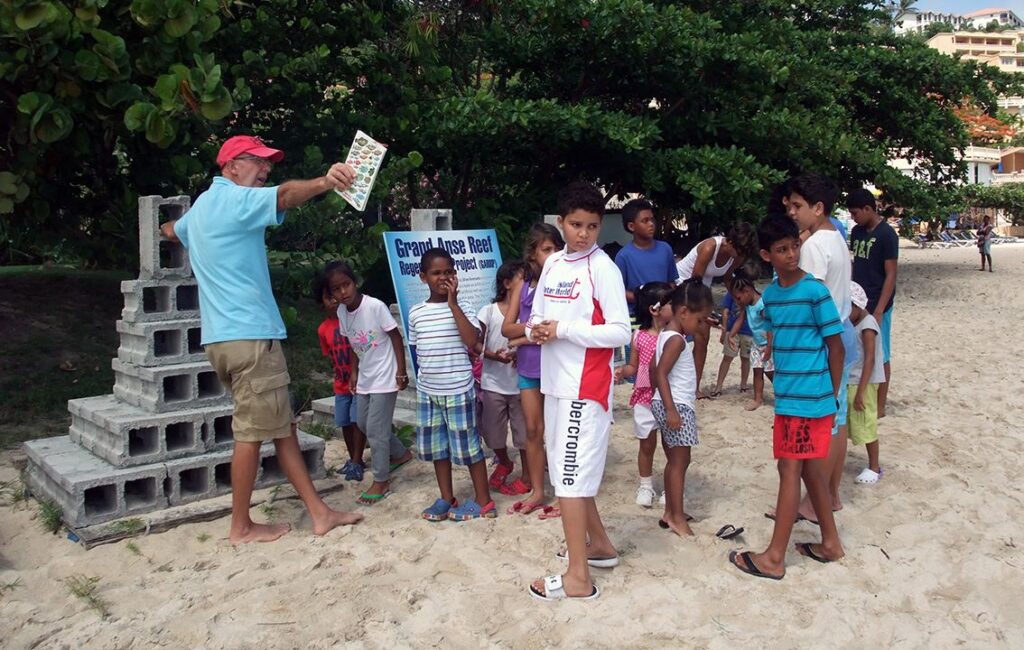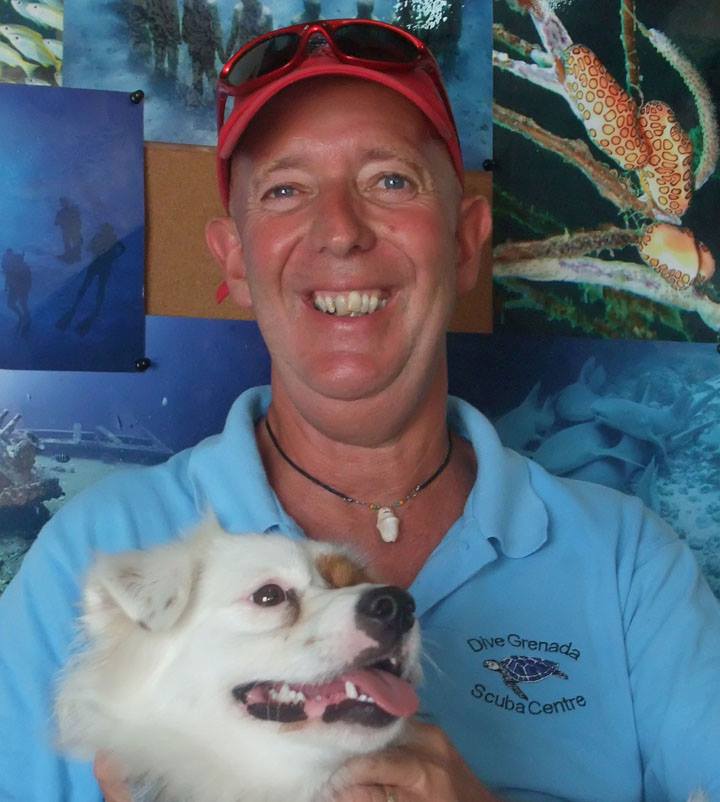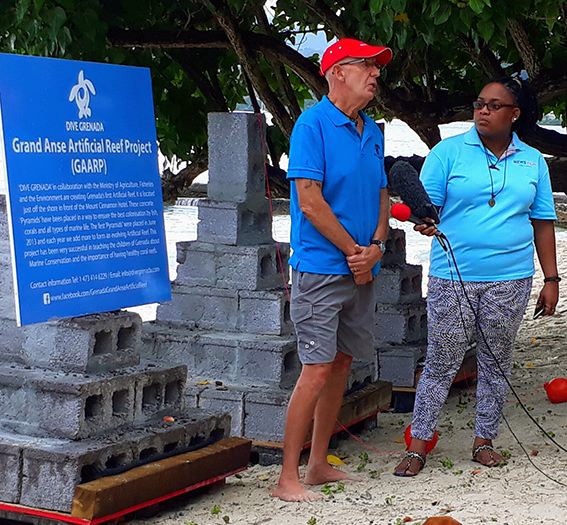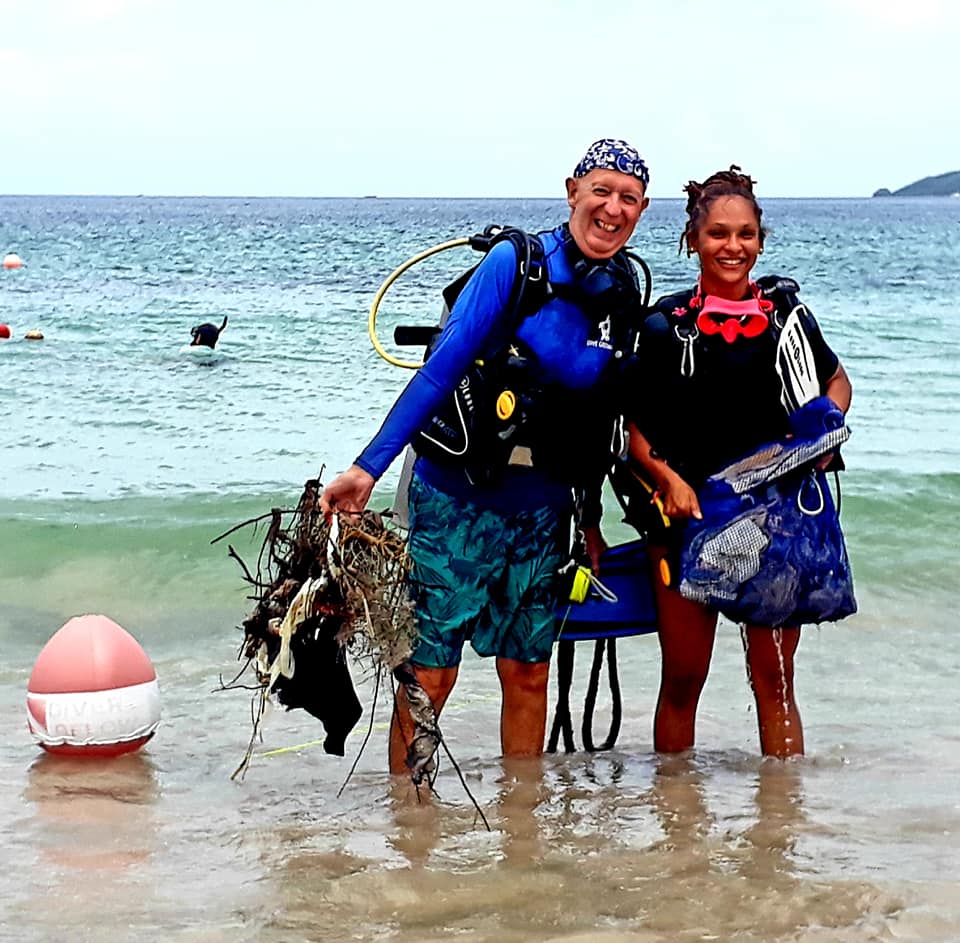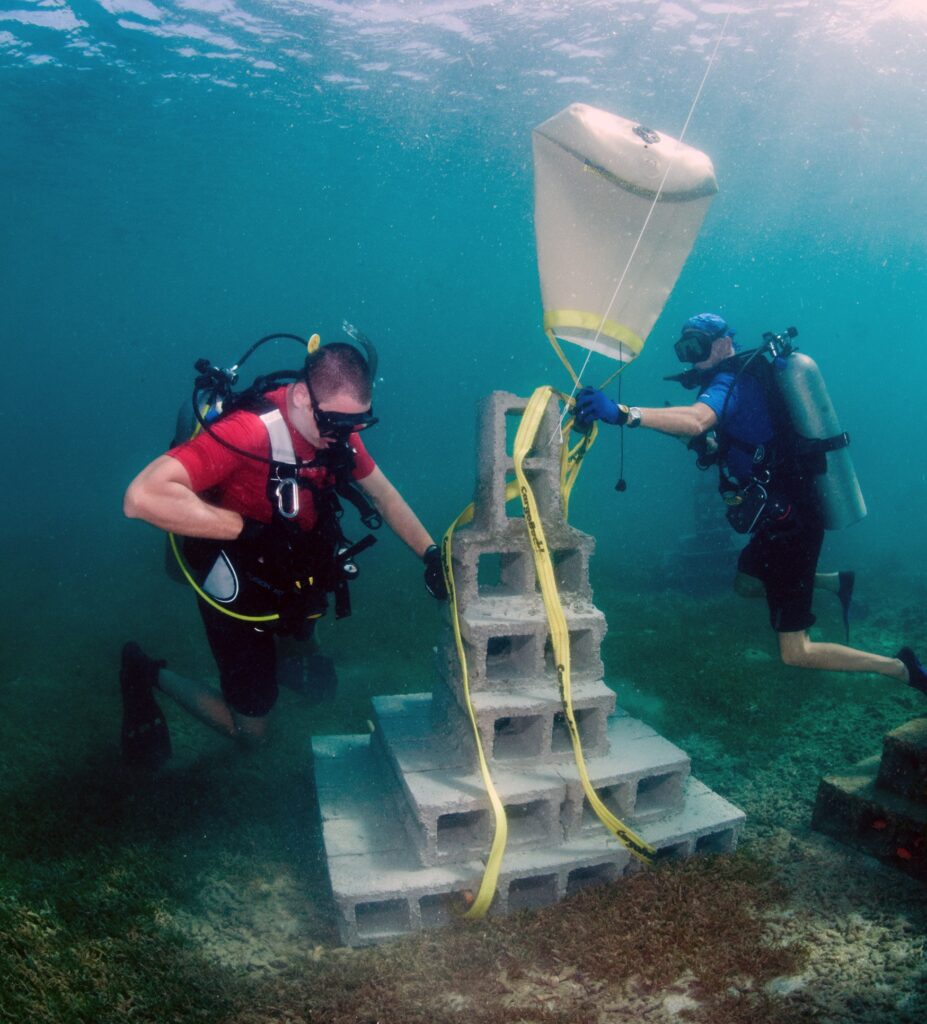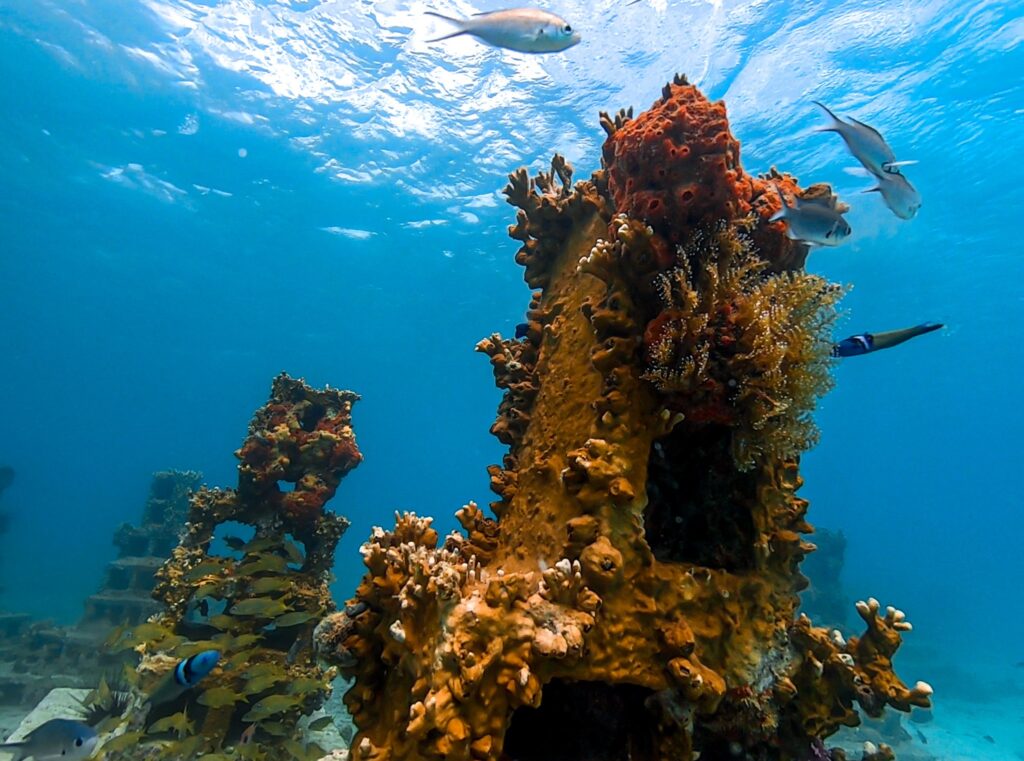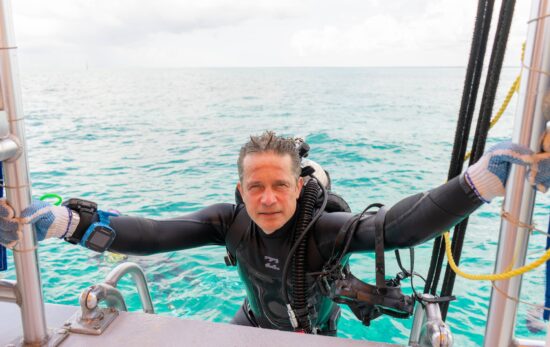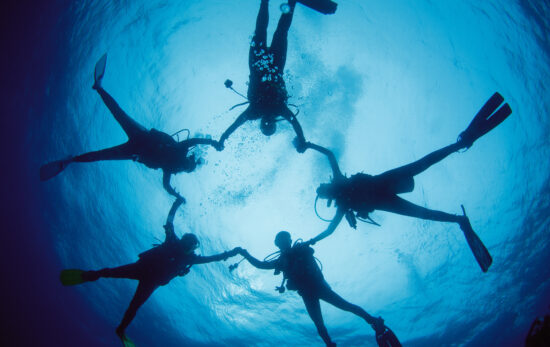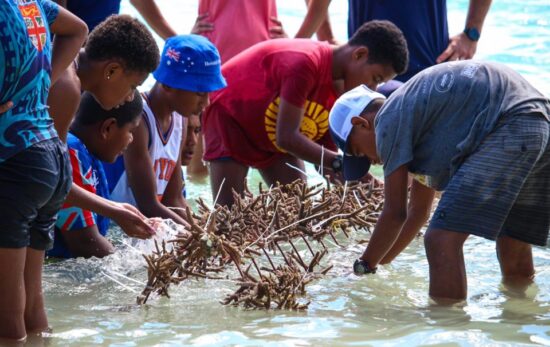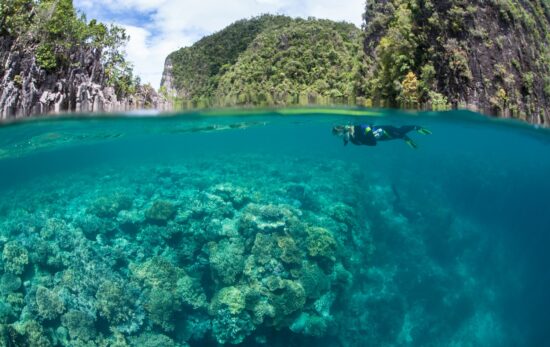Over the past five decades PADI Members have certified millions of divers, instilling a life-long passion for the ocean and the desire to protect it.
Still, the ocean is in crisis. But as the world’s largest network of ocean-advocates with first hand experience of the ocean, it is our legacy and mission to stand up for what we love and achieve balance between humanity and the ocean. Each and every PADI Dive Center and Resort can serve our blue planet as a Torchbearer Mission Hub. Mission Hubs create opportunities for restorative “fins on” and “fins off” actions to realize the conservation goals set out in PADI’s Blueprint for Ocean Action.
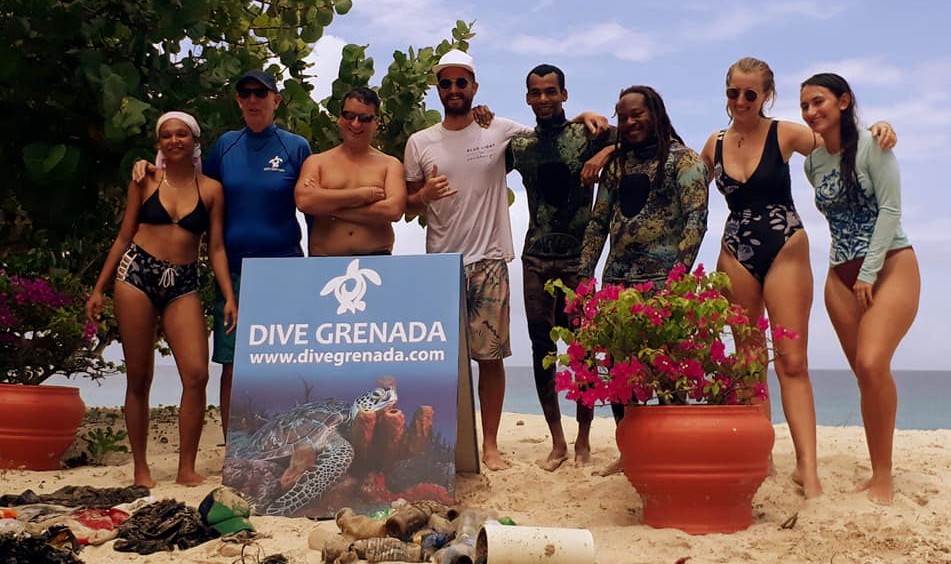
We connected with Phil from PADI 5 Star Dive Center and Mission Hub Dive Grenada, to learn more about thier ocean-saving efforts.
Are you a Torchbearer or Mission Hub with conservation achievements to share? Get in touch! We are proud to elevate the conservation commitments of our community. You can reach us on [email protected].
Hi Phil! So let’s start with the basics: how did you first get into scuba diving? What certification level are you?
I was originally in the Royal Navy in the UK where I learnt to dive and received my UK qualifications. In the late 90s I started diving with PADI and reached MSDT in 2003. I am owner and operator of Dive Grenada (PADI # 16533).
What environmental achievement are you most proud of?
My biggest environmental achievement that I am most proud of is the creation of the Grand Anse Artificial Reef Project (GAARP). We went from conception, construction and installation in about 6 months. Setting up an Artificial Reef (AR) was an idea that came to me when I was dive travelling around the world and felt that I could design and build something with better efficacy than what was out there at the time.
Tell us more! How did you and your team go about setting it up?
I made myself a very strict criteria that would have to be met:
- It must work… and have no negative impact on the marine environment.
- It must be close enough to shore so that everyone can reach it easily.
- The construction must be strong enough to withstand sea swell and surge, easily made from locally sourced materials, using local labor.
- There must a strong educational component allowing the children (and adults of course…) of Grenada to learn and get more involved with Marine Conservation.
- The construction and materials should be globally available to ensure transfer of skills to other partners.
- Has the ability to create livelihoods and become a unique tourism product.
Is this model replicable elsewhere? What advice would you give other dive centers looking to set up an artificial reef?
The model is extremely replicable and my advice to anyone setting up any kind of project like this is to be ‘smart’ and ensure you have the project financed in a sustainable way. Get all stakeholders involved at the start, including all governmental agencies.
Coral restoration can be tricky, and without the right knowledge we risk doing more harm than good. What advice would you give others interested in coral restoration?
Take advice from persons who are doing something similar and have no ‘hidden agenda’. Make sure you surround yourself with people who know what they are talking about.
Are you and the Dive Grenada Team involved in any other ocean-saving initiatives you can share?
Dive Grenada are carrying out Underwater Clean Up on a regular basis, not just on specific days. We have eliminated all ‘one use’ plastics from the dive shop. We are leading a charge to reduce water use by placing a 500ml bottled filled with sand into cisterns so that amount of water is reduced every time it flushes.
What does using your dive business as a PADI Mission Hub mean to you?
As I see it we have to be role models to the younger generation to ensure that they fully understand that ‘Doing Nothing’ is not an option. Without our intervention the Oceans and Coral Reefs we see today will no longer be viable to sustain life as we know it. So the time for ‘action’ is now.
The one thing I would ask the ‘Torchbearer’ community to do is never miss an opportunity to share their knowledge and educate as many people about the environment and the need for action.
